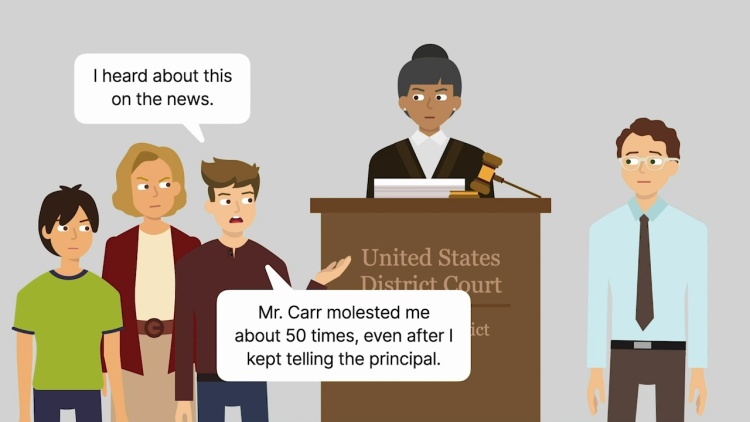R. M. R. v. Muscogee County School District
United States Court of Appeals for the Eleventh Circuit
165 F.3d 812 (1999)

- Written by Sara Rhee, JD
Facts
In 1993, R. M. R. (plaintiff) was molested by a music teacher, Herman Larry Carr, at Richards Middle School. R. M. R. sued Muscogee County School District (Muscogee) (defendant), claiming that Muscogee was vicariously liable, because it knew or should have known that Carr posed a danger to children. A jury trial commenced. On the third day of trial, a witness identified as D. L. J. appeared at the courthouse. D. L. J. claimed he had been a student of Carr’s in 1984, that Carr had molested him 50 times, and that D. L. J. had reported the abuse to the principal at Richards Middle School. R. M. R. was previously unaware of this information, because D. L. J. had attended Richards Middle School under a different name. R. M. R. moved to call D. L. J. as a witness, notwithstanding the fact that D. L. J. did not appear on the pretrial order. At this point in the trial, R. M. R had rested his case, and Muscogee’s defense was almost complete. Muscogee opposed the motion, arguing that it would be highly prejudicial to allow D. L. J. to testify without first allowing Muscogee the opportunity to depose him and conduct an investigation to rebut his testimony. The district court denied R. M. R.’s motion. The jury found in favor of Muscogee. R. M. R appealed the verdict, arguing the district court improperly excluded D. L. J. as a witness.
Rule of Law
Issue
Holding and Reasoning (Tjoflat, J.)
What to do next…
Here's why 907,000 law students have relied on our case briefs:
- Written by law professors and practitioners, not other law students. 47,100 briefs, keyed to 996 casebooks. Top-notch customer support.
- The right amount of information, includes the facts, issues, rule of law, holding and reasoning, and any concurrences and dissents.
- Access in your classes, works on your mobile and tablet. Massive library of related video lessons and high quality multiple-choice questions.
- Easy to use, uniform format for every case brief. Written in plain English, not in legalese. Our briefs summarize and simplify; they don’t just repeat the court’s language.





